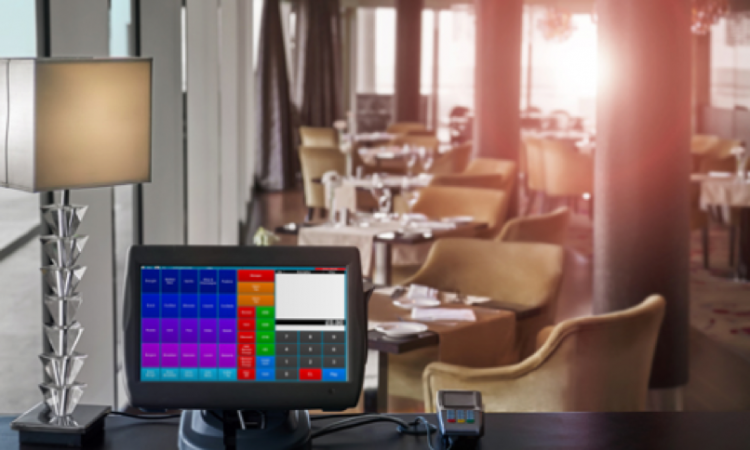
Looking for a system that will automate and streamline many business operations? Want to have access to real-time metrics and analytics so that you can make data-driven decisions? One tool that provides all of this (and more!) is an ePOS system.
These systems are designed to automate a variety of processes, including inventory management, sales tracking, and reporting. These systems also allow for more mobile transactions that are convenient for you and your customers.
But, there are some mistakes you can run into with an ePOS system. Here are some of the most common, along with ways to avoid a costly investment that doesn’t meet your needs.
Not Knowing Business Needs
It’s true that ePOS systems are designed to help with many of the most important business processes. But before you purchase a system, it’s best to take the time to figure out what kind of features and functionalities would best benefit your company.
For example, maybe you’re a growing small business that’s having a hard time keeping up with its inventory. In this instance, you’d want to find an ePOS system that caters to growing small businesses while also offering an in-depth inventory management feature.
Aside from features and functionality, you’ll also need to consider your budget. Look at the numbers and figure out how much your business can afford to spend upfront. Don’t forget to account for monthly service fees (if applicable).
Choosing the Wrong ePOS for Your Industry
There are hundreds of different types of ePOS systems on the market. You’ll find that most are designed for a specific industry, such as retail or hospitality. While you won’t run into issues when it comes to choosing hardware, such as a cash register or barcode scanner, you want to be well aware of the type of software that you’re buying.
Buying the wrong ePOS system could lead to all sorts of costly fees such as face account freezes, credit card swipe fees, and even early termination fees.
Before investing in an ePOS system, take the time to find one that is meant for your industry. This way, you can have peace of mind that the system you choose has features that best benefit your business.
Improper Installation
Some ePOS systems seem as if they’d be relatively easy to install. How hard could it be to set up a tablet-based system? While set up may seem simple enough, it’s best to have the system professionally installed. Most hardware vendors or POS providers will happily install the system for you.
With a professionally installed system, there’s a much lower risk of system glitches, cable issues, or problem with software settings. Even if setup seems like something you can do, you likely don’t know the nuances of the system.
Always let a professional install the ePOS system to avoid as many issues as possible.
Unsecured (Or Poorly Secured) WiFi
Data hacks and leaks can have a huge impact on your business’ reputation. Customers find it hard to trust a company after having their information stolen.
One of the easiest ways for data to be stolen is through unsecured or poor WiFi security. Starting in 2005, nearly 90 million credit cards were stolen from TJX Companies, all thanks to improperly protected WiFi networks inside of their stores.
So how can you properly secure the network your ePOS system uses? Some of the best options include:
- Using Enterprise WPA2 with 802.1X authentication
- Ensuring physical security
- Using a strong password
- Securing 802.1X client settings
- Using wireless intrusion prevention
By properly securing the connection that the system uses, you can greatly minimize the risk of a hacker getting into the network and gaining access to the data stored on the ePOS system.
Not Test Driving the System
You wouldn’t buy a car without driving it, and this same notion stands true for an ePOS system. An ePOS system is an expensive business investment. You want to know that your business funds are going towards a product that will provide the features and benefits that you need.
Before purchasing an ePOS system, take advantage of the free trial period. Most ePOS vendors offer at least a 14-day free trial. This gives you two weeks to play around in the system. With a hands-on trial, you can test all of the features and allow your employees to experience using the system.
During the free trial period, you want to make note of how usable the system is. You don’t want to bring in a system that isn’t easy to use. There’s nothing worse than new technology that’s confusing and frustrating to learn.
Conclusion
The right ePOS system can be priceless for your business. There are many mistakes that businesses make when choosing ePOS systems. With these tips, you can avoid making a decision that could be quite costly.
This is an article provided by our partners network. It does not reflect the views or opinions of our editorial team and management.
Contributed content

Founder Dinis Guarda
IntelligentHQ Your New Business Network.
IntelligentHQ is a Business network and an expert source for finance, capital markets and intelligence for thousands of global business professionals, startups, and companies.
We exist at the point of intersection between technology, social media, finance and innovation.
IntelligentHQ leverages innovation and scale of social digital technology, analytics, news, and distribution to create an unparalleled, full digital medium and social business networks spectrum.
IntelligentHQ is working hard, to become a trusted, and indispensable source of business news and analytics, within financial services and its associated supply chains and ecosystems



























